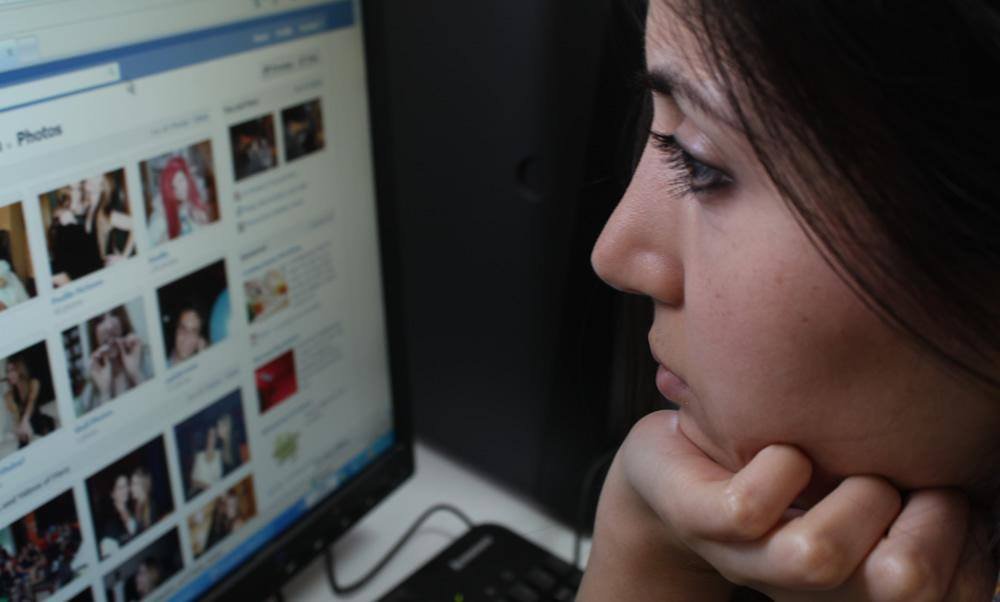Virtual

According to data provided by the company last year, the average Facebook user spends almost an hour of his life on this social network every day. A survey of the consulting company Deloitte showed that for many users, checking applications in social networks is the first thing they do in the morning, even before they get out of bed. Of course, social interaction is a healthy and necessary part of virtual human existence. Thousands of researchers have already concluded that most people feel better when they have strong and positive relationships with other people.
The problem is that most of the scientific work on social interaction was carried out within the real “Social networks” – the interaction of people face to face, and not in online relationships that are becoming more virtual common.
We know that interaction with people in real life has a beneficial effect on a person. And what about the relationship that is built directly through the screen of a smartphone or computer?
Previous studies in this field have shown that the use of social networks can reduce real interaction with people, increase the length of time spent by a person in a sitting position, lead to Internet addiction And undermine self-esteem as a result of social comparison.
Self-esteem has a strong influence on people’s behavior, and since all users tend to demonstrate only positive aspects in social networks A person can believe that his own life is not as good as the life of another.
However, some skeptics ask the question: perhaps people with a lower level of welfare are more likely to use social networks, rather than social networks cause more Low welfare? Some studies have found that social networks have a positive impact on well-being, because they expand social support and strengthen relationships in the real world.
Researchers Holly Shakya of the University of California and Nicholas Christakis, From Yale University decided to get a better understanding of the relationship between well-being and the use of social networks. Scientists for three years studied the data of 5 thousand people. They collected information about Facebook’s use and health data to see how well-being has changed over time due to the use of the social network.
The welfare assessment was conducted on the basis of information on life satisfaction, self-esteem, psychological and physical health, Body mass index. In each wave of the survey, researchers asked respondents to name up to four friends with whom they discuss important issues and the same number of people with whom they spend their free time to assess interaction in the real world.
Researchers name three benefits, Which distinguish their scientific work among others. First, they studied three waves of data from respondents for three years. This allowed them to monitor how changes in the use of social networks have changed their well-being. Secondly, they had objective indicators of social network usage, taken directly from their accounts, rather than self-reports of respondents. And thirdly, in addition to Facebook data, they had information about real interactions with surrounding people, which allowed to compare the impact on the respondent of internal and virtual interactions.
Meanwhile, the researchers themselves point to some reservations. For example, many users did not provide access to their data on Facebook, most of the rejected – young people. Thus, the results can be “skewed” towards the experience of using social networks by older respondents (the researchers took into account their age and gender).
The average age of those subjects who provided Facebook data was 48 years – people of this age lived a large half of their life without the widespread influence of the Internet. Plus, in studies based on data from respondents, there may be some error.
The result for someone seems to be expected: the use of Facebook has made people less happy. Using a social network for one year showed a decrease in psychological health in the following. The key indicator that supports the hypothesis is that every increase in the number of “likes”, click links and status updates by 1% reduces the psychological health indicators by 5-8%.
Researchers measured three types of activity: “likes”, publication posting and referencing, and their impact on the user. And although they expected that content from other people with “likes” is more likely to lead to critical self-analysis and, consequently, to a decrease in welfare, updating their own status and clicking on links led to a similar effect.
However, not everything is as bad as it might seem. Researchers also note that people often turn to Facebook when they are already sad, because they do not want to enter into direct contact with people in this state.
In general, the results indicate that the decline in the general mood depends not only on the quality of Facebook usage, but also on the number (that is, the frequency and time of stay). And although too long a stay in front of the screen is a long-standing problem, the trick of social networks is that while people use them, they have the impression that they are engaged in meaningful social interaction. Scientists have confirmed that the nature and quality of such relationships can not replace interactions with the real world that are necessary for a healthy life.
It is certainly difficult to fully study the influence of social networks. The impact of carefully selected photographs and other content on the lives of others leads to a reduction in self-esteem, and constant interaction with people in social networks can detract from more meaningful real life events. And it is quite obvious that virtual social interactions can not replace real ones.
doi: 10.1093 / aje / kww189









